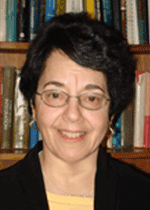A Global Experience
One of the responsibilities of the ASA president is to travel to many places and represent the ASA. In mid-August, I had the privilege of attending the International Statistical Institute (ISI) World Statistics Congress in Dublin, Ireland. For me, this was a mind-expanding experience, both in terms of subject matter and meeting so many statisticians from so many countries. I was thrilled to attend a session titled “Reflections on the Past, Present, and Future of Statistics,” featuring Sir David Cox, Donald Rubin, and Peter Huber, with Stephen Stigler as a discussant. A theme that emerged is that statistics has evolved from the traditional view of small homogeneous data sets and precisely defined models to large, heterogeneous data sets and there is a need for strategic thinking, development of complex, approximate models, and statistical computing to support such developments.
Also of great interest was a panel discussion about the future directions and new challenges in mathematical statistics. This panel featured Peter McCullagh of The University of Chicago as chair and panelists Rosemary Bailey of Queen Mary College, London; Xiao-Li Meng of Harvard University; Joan del Castillo of the University of Barcelona; and Elvira DiNardo of the University of Basicilicata, Italy. To my surprise, the premise of the session was that new mathematical statistics will arise from applications, and, indeed, the panelists represented a variety of areas.
Bailey, who works in designs of agricultural experiments, spoke about whether statisticians should be in a mathematics department, in their own unit, or spread in other departments. She also posed the question of how statisticians keep up with new technology to identify new problems and discussed the general problem many of us face: “We all have computers these days, so we don’t need statisticians!”
Meng addressed the problems of mathematical models being too simple, or even incorrect, using a paper about catching terrorists that appeared in Significance as an example. Del Castillo spoke about problems in finance and analyzing financial markets, while DiNardo discussed symbolic methods in statistics with applications to computational statistics.
Another stimulating session was a lunch meeting of national and regional statistical societies. The goal of this meeting was to identify areas in which statistical societies can cooperate and coordinate activities and identify needs of societies from developing regions of the world. It was exciting to meet the presidents of statistical societies from Ethiopia, France, Hong Kong, Japan, (South) Korea, Lithuania, the Netherlands, Singapore, Slovenia, South Africa, Turkey, and, of course, Ireland, to name a few.
Two universal themes emerged. One was the need for statisticians in academe and statisticians in practice, whether in government or industry, to work together to consider their joint interests and the future of statistics in their countries. The other was the global shortage of statisticians. Training statisticians is an important issue in developing nations (as well as in developed nations), where potential statisticians often must leave their countries to obtain proper credentials. We learned that several countries are forming organizations of young statisticians to help one another in career development. Such organizations exist in England and Africa.
A satellite meeting, the first Young Statisticians’ Meeting, preceded the ISI Congress and sought to unite such activities and promote active participation of early career statisticians. (Click here to view the ISI Young Statisticians Committee.) A report at the national and regional statistical societies meeting indicated the satellite meeting was successful.
The ASA was represented at this meeting by Executive Director Ron Wasserstein, Past President Sastry Pantula, President-elect Bob Rodriguez, and me. Wasserstein reported on our plans to spearhead 2013 as the International Year of Statistics, which was later enthusiastically endorsed by the ISI. We are hopeful that many societies throughout the world will participate.
Overall, it was inspiring to look beyond our own society and learn that we statisticians are truly members of a global community.


















